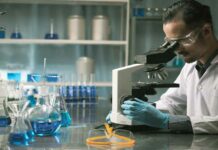According to the third Real-World Evidence (RWE) benchmarking survey published in June 2022 by Deloitte, there is a segmentation of outcomes between businesses with more developed organisational and technological RWE capabilities and those with less developed skills.
Since Deloitte’s latest RWE survey, the demand to use RWE to speed up medication development and provide market access has not abated. Since it offers various chances to guide recovery plans to reduce the effects of the pandemic on scheduled or existing investigations, it is probably even more crucial in the wake of COVID-19. Companies are being forced to develop new strategies for utilising RWE throughout the product’s life cycle as a result of increasing pricing constraints and poor R&D returns. Building enterprise-wide RWE skills has become crucial for the pharmaceutical business as regulators continue to indicate a receptivity to RWE and payers demand more proof of the value of goods.
Actions taken by businesses with established RWE capabilities
As per the survey results from Deloitte, businesses that have mature RWE capabilities—defined as those that have established, strong capabilities to use RWE throughout the entire product lifecycle—are more likely to see the value of using RWE in R & D, to form strategic alliances to gain access to RWD, and to have already put in place centralised understanding management and analytics systems.
Regardless of age, the majority of respondents to the poll, 70% think that by 2022, RWE will be highly significant to their C-suite. It’s interesting to note that businesses with developed RWE capabilities claim that nearly half of survey respondents claim that their C-suites now place the greatest priority on RWE.
RWE’s significance in R&D is steadily increasing
RWE can be used in R&D in a variety of contexts. By improving protocol design and minimising the need for expensive protocol revisions, RWE can speed up trial execution and lower costs overall. It can also make it possible to create synthetic control arms. Similar to how RWE can speed up label growth and cut down on the total cost of filing evidence. The study this year evaluated the level of significance of RWE in R&D, the greatest opportunities, the early successes, and the difficulties in realising an influence.
RWE’s significance and utilisation in R&D are anticipated to grow dramatically over the next two years, according to survey respondents.
A greater strategic focus, according to more than 40% of this year’s respondents, is being driven by recent FDA regulations and statements promoting the use of RWE in R&D. Others mentioned growing competition in terms of pricing and market access, increased development costs, or a mix of these concerns.
According to 96% of survey participants, RWE is anticipated to have a greater influence on R&D in cancer than in other therapy areas.




















